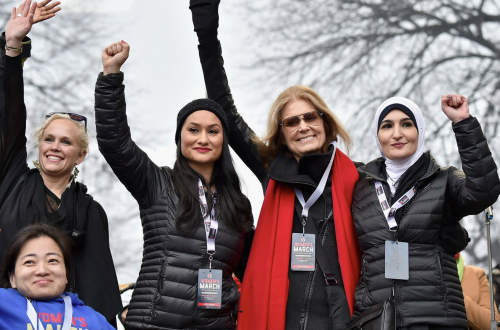There is something alarmingly vague about some of Theresa May’s latest proposals to tackle extremism.
At the moment, organisations can only be banned if there is evidence of links to terrorism.
Under the Tories’ new proposals, groups that cannot currently be proscribed could be subject to banning orders should ministers “reasonably believe” that they intend to incite religious or racial hatred, to threaten democracy or if there is a pressing need to protect the public from harm, either from a risk of violence, public disorder, harassment or other criminal acts.
There are several layers here – there has to be a ‘reasonable belief’ that a group ‘intend[s]’ to incite hate. And what is meant by ‘threaten democracy’ precisely? If a theoretical opposition to democracy, because it is perceived to be in conflict with Islamic teachings (or because Russell Brand thinks it’s a waste of time), is to be outlawed – does that mean iERA might be illegal? Would a reasonable belief that a group might be inciting religious or racial hatred be enough to proscribe the EDL or Britain First? I’m not a fan of any of these groups, but banning is a serious step.
Although there’s nothing wrong with any constructive group seeking funding or with extremists being scrutinised, this bald binary, framed as a two pronged policy on Islam, is rather disconcerting.
Among other things, the new strategy outlined by Mrs May will seek to bolster Islamic institutions that operate in a way which is “compatible” with British values and look to improve vetting procedures to prevent extremists being appointed to positions of authority, including in schools.
John Sargeant argues that these proposals are misjudged because, while the media hold extremists to account, the government refuses to acknowledge the links between terrorism and religion. There’s certainly something in this, and non-violent extremism has too often been given a free pass. But although sections of the media may challenge extremists’ views, some offer them a platform while, at the other end of the spectrum, scare stories are spread and decidedly non-extreme Muslims treated with suspicion. And inviting someone like Anjem Choudhary to speak, even where his view are challenged, infuriates many more liberal Muslims, and inflames (for different reasons) the Islamic and the conventional far right.
If these proposals have a narrow goal – if they are meant to prevent the influence of ISIS – then I’m not sure they’ll succeed, particularly as they are potentially targeting those highly conservative opponents of ISIS who (from a possible recruit’s point of view) are, regrettably, most credible, despite holding utterly hateful views themselves. (And these non-violent extremists should certainly not in any way be praised or promoted for not being quite so depraved as ISIS.) If they are instead aimed at non-violent extremism, then the strategy still isn’t convincing. It’s my perception that more left/liberals are becoming aware of these issues, more inclined to listen to those who strongly oppose theocrats – secular Muslims, for example. Repressive measures may check this progress.


